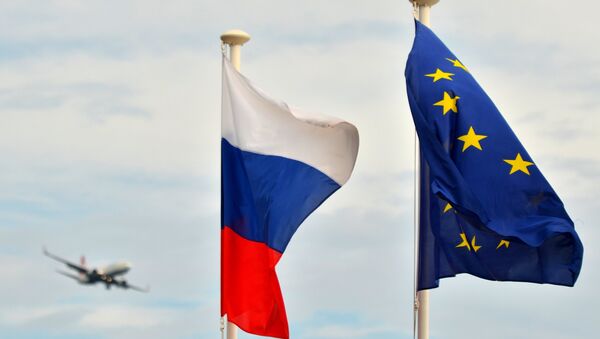Lifting of the EU anti-Russian sanctions and the presence of EU's political will to create a common economic space from Lisbon to Vladivostok is a necessary precondition for the restoration of mutually beneficial and friendly relations between the EU and Russia, Russian Ambassador to Germany Vladimir Grinin told in interview to DWN.
“The major impact of the EU’s anti-Russian sanctions regime is, as before, the loss of trust between the partners. Everything that our predecessors have created over the past decades with so much effort is being destroyed before our eyes,” Grinin said.
The Union that entered into force by January 1, 2015, includes Russia, Belarus, Kazakhstan and Armenia.
The Union is “not an attempt to revive the 'Russian Empire' as some here tend to interpret,” the ambassador said.
It was originally conceived as an efficient integration community to meets all modern standards and conditions for stable economic growth in the participating countries, thus increasing their wealth and global competitiveness, said Grinin.
Anti-Russian sanctions have had negative impact on both sides. In 2014, German exports to Russia fell dramatically by 18.1 percent or 6.5 billion euros. The trade turnover between the two countries decreased by 12.09 percent up to 67.7 billion euros (compared with 77.03 billion in 2013).



